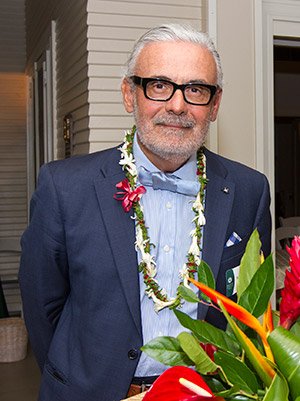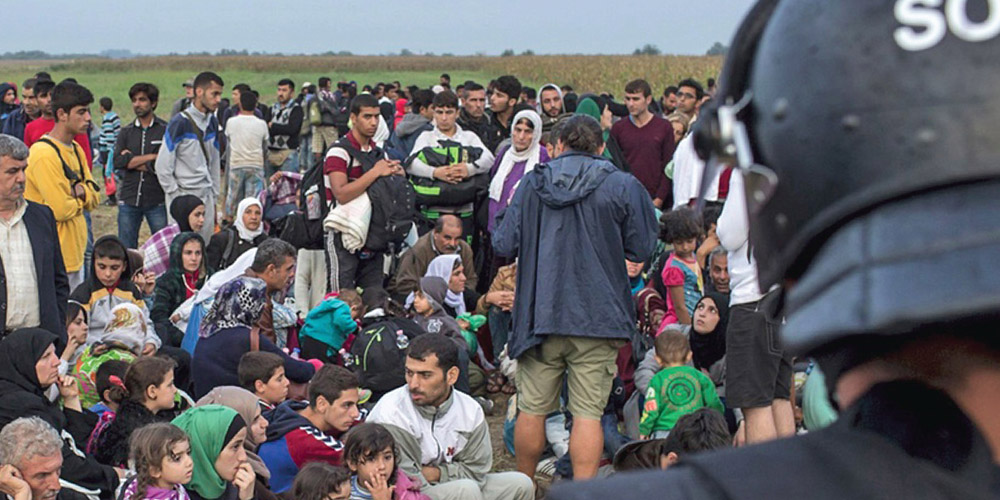A lecture by Marcelo Suárez-Orozco

Dr. Marcelo Suárez-Orozco is a Wasserman Dean of Education and Information Science at UCLA. A prolific researcher and expert in immigrant education, migration, and multilingualism, he is the author and/or editor of 26 books and volumes, including Learning in a New Land: Immigrant Students in American Society and Making Migration Work.
Suárez-Orozco is a member of the American Academy of Arts and Sciences and has consulted for the Holy See, the President of Mexico, the United States Courts for the Ninth Circuit, and the International Criminal Court on migration issues.
“In the 21st century, global migratory flows bring ever-more diverse populations from heterogeneous ethnocultural, racial and religious backgrounds,” Dr. Marcelo Suárez-Orozco said. “The world is witnessing a rapid rise in the numbers of a plurality of migrants—involuntary, internal or international, authorized or unauthorized, environmental refugees and asylum seekers. In the second decade of the 21st century, 244 million folk are international migrants, or 3.3 percent of the world’s population.
“In a world on the move, Hawaiʻi is an extremely important and instructive case for any understanding of the great global migrations in the 21st century. At over 17 percent, the percentage of Hawaiʻi’s foreign-born immigrant population is significantly higher than the U.S. total (13 percent). Our country’s paradigmatic first (and only always) ‘minority-majority’ state, Hawaiʻi’s immigrant population grew at a particularly fast rate in recent times (between 1990 and 2000 Hawaiʻi’s immigrant population grew by 30 percent). How Hawaiʻi manages the transition of its littlest new Hawaiians—the children of immigrants in schools—will be a defining new chapter in the unfolding Hawaiian saga. It has significant implications for the well-being of the children, for Hawaiʻi’s future and could be a model for the entire nation.”
About Carl and Alice Daeufer:
The Carl and Alice Daeufer Education Lecture Series is supported by generous gifts from College of Education (COE) emeritus professor, Dr. Carl J. Daeufer and his late wife, Alice Daeufer. Dr. Daeufer served for thirty-five years as a COE faculty member, actively involved in university teaching, research, and administration; the University of Hawai‘i Professional Assembly (UHPA); overseas education development; and public elementary and secondary education.
Carl met Alice in 1960 when he started working at the COE and she was on the staff of the University Laboratory School. They married in 1965. Alice retired as an assistant professor in 1989 after serving as a faculty member of the University of Hawai‘i for twenty-two years.
Alice and Carl established an endowed fund, which offers annual scholarships and this education lecture series because they wanted to “give something back” to the COE and the University of Hawai‘i. Alice always said, “I had favorable experiences at the University. I want to help students wishing to teach in Hawai‘i by giving this scholarship.” Since then, a total of twenty-seven scholarships and nine public lectures have been supported by the Daeufer Family Endowment Fund.
Questions? / More Information
If you would like to learn how you can support UH students and programs like this, please contact us at 808 376-7800 or send us a message.
